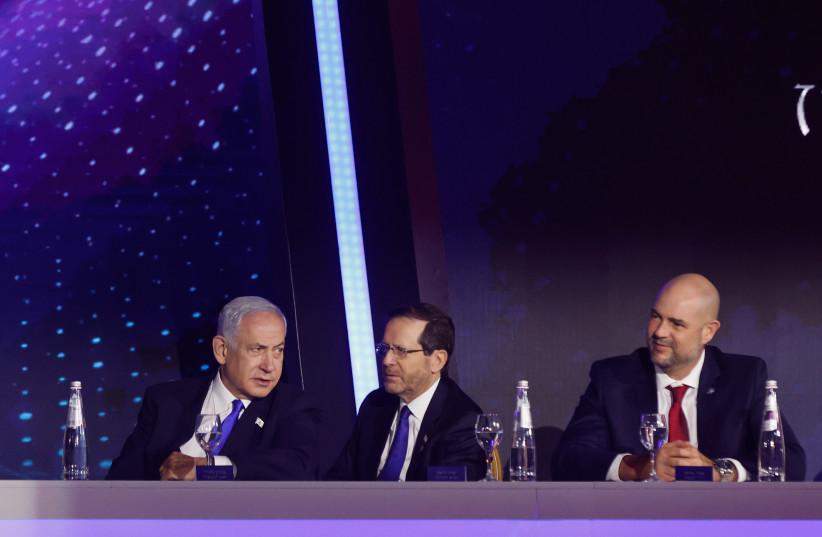Israel's High Court of Justice issued a conditional order to Education Minister Yoav Kisch after the cancelation of the Israel Prize for 2024 on Thursday. The High Court ruled that the minister must explain why the distribution of the prize was canceled.
The High Court ruled that "In view of the pressing time frame and the state's position that in order to agree to the relief requested in the petitions, and to distribute the Israel Prize this year as initially scheduled for the Independence Day ceremony on March 14, 2024, for reasons of efficiency in handling the petitions and expression of the facts, without taking a stance, and we decided to order the issuance of a conditional order as requested in the petitions."
How the controversy began
Maariv journalist Ben Caspit revealed two weeks ago that after the announcement by Education Minister Kisch that the Israel Prize will not be distributed in the predetermined categories this year, instead, six winners will receive awards in the category "Resurrection: Civic Heroism and Mutual Responsibility."
In fact, Kisch learned that the entrepreneur Eyal Waldman won the Prize, and Kisch was also the one to tell Netanyahu about the decision. Kisch then asked the committee members to reconsider the decision, and then, he asked them to cancel it.

Kisch also proposed to select Professor Shulamit Levenberg, one of the inventors of cultured meat technology, in Waldman's stead. The committee rejected the request outright. Levenberg is young, her field is purely science-based, and her discovery has not yet matured nor produced significant results.
This is the first time since the establishment of the state that the Israel Prize are canceled due to an external (or internal) event. Kisch's decision was met with great fury in the scientific, research, and artistic community, and they asked him to reconsider the cancelation.
The question is why should the achievements of people in the fields of sciences, spirituality, and society be canceled?
